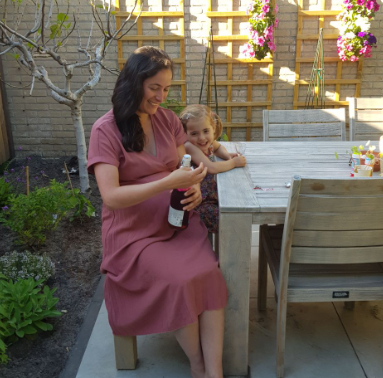
Nine pointers on how to support your PhD candidate transitioning to parenthood
A while back, our rector asked me whether there is some support system for PhD students who become mothers (or parents). The answer was no, although on individual level there is a lot of support available (through your supervisors). Also, in the Netherlands, laws and regulations are really decent (even for PhD candidates, since we are considered staff members) compared to other countries. Yet this got me thinking, how to best support a PhD candidate who is transitioning into parenthood? Here I give 9 pointers for supervisors to help your PhD candidate. Feel free to comment/add, as I am sure many of you appreciate the shared experience and info.
- Obtaining a PhD is a time of many changes on professional and personal level. This transitional phase is similar to becoming a parent. This can be a difficult transition, due to a lot of emotional challenges and great number of uncertainties one can face. At all times as a supervisor: be respectful and mindful of this change or these changes. Be conscious of the fact that it can be a temporary situation or that events may solve itself. Also, coming from different cultures and upbringing, you might see things differently or are unknown to you, so decisions or ways of tackling situations by your PhD candidate might be different than you are used to.
- Ask at all times how your candidate is doing, workwise and personally now that the baby is coming. Also, ensure you ask if there is anything they need. Keep repeating this request because pregnancy and post-partum is a long time and things change. You might think that you cannot help or that your interest is unprofessional, but this is an assumption or a misconception. Not asking or showing interest is worse than having tried.
- Discuss openly how you can support your candidate through this transition. Maternity/parental leave is not a threat to your career or the progress of the PhD trajectory, it’s a different path towards the same goal. Reorganize tasks (e.g. are they physically still possible?), check whether deadlines and timing of things are still accurate/feasible and again, be realistic rather than demanding. Most of the times, there is a way out and other opportunities arise.
- Don’t assume anything for the candidate in question. We are quite driven by our assumptions/biases and past experiences. Ask for the facts. We scientists like facts and we tend to be quite abstract about things. And this is a comfortable way of working. However, pregnancy is an uncontrollable force of emotions/hormones (ALSO FOR MALES). So be aware that things change due to this emotional rollercoaster from one week to the next. We become quite unsure, insecure due to these constant changes. Make this topic available for conversation and give emotions space and time.
- We all have a parent, are parents ourselves or intend to become a parent. And even if this doesn’t apply to you (or you think you it doesn’t) it means that you are somewhat experienced one way or the other with parenthood. It might be very useful to share your experiences with your candidate to find some common ground or increase your connection between you two. This is a foundation for trust and mutual respect.
- Do some searching/Google-ing. Find information from your institute, for local authorities etc. E.g. breastfeeding options, daycare on site, rules regarding maternity leave in the grant you have obtained etc. This can help your candidate getting set for the arrival of the baby. A lot of changes and new information is coming at the new parent, so you might be able to aid in obtaining the right information. Some of us are foreigners, making it extra scary to become a parent in a place we are unfamiliar with, making us unaware of rules, rights and regulations. Help them out, this is actual and factual help you can offer.
- Let’s hope it never happens but pregnancy can have different outcomes. If such unfavorable outcome happens, you as a supervisor have an obligation to offer any assistance for your candidate. This is not a work obligation: it’s a human obligation. Miscarriage, birth complications, child disabilities, death, post-partum depression (for fathers and mothers), breast feeding and marriage issues ARE topics for conversations. Prepare yourself thoroughly (any cultural aspects you should consider), ask for support (talk to fellow colleagues, professionals) and make it possible to talk with your candidate about these issues. Despite the taboo, break that cycle.
- Encourage your candidate to talk to fellow staff members of your department that have experienced the same thing. Especially, if you cannot offer many of these elements, or if you are not comfortable with these interpersonal skills.
- Celebrate the life that is being created. If you are not familiar with becoming a parent or if you did not have similar positive experiences of coming a scholar and parent (combining an academic career with parenthood), make sure your candidate does not experience the same. Be part of the change for the next generation of academics.
It can mean the world to your PhD candidate if you show only the slightest form of support or signs of understanding. If you provide support and understanding, you ensure mutual respect, simulate motivation and allow for commitment to finish the PhD regardless of the baby’s arrival. Instead of seeing the potential threats, embrace this special event for your candidate and contribute to a safer work relation and better life experience.
Reading these tips alone is already therapeutic :)) !! Thanks for sharing!